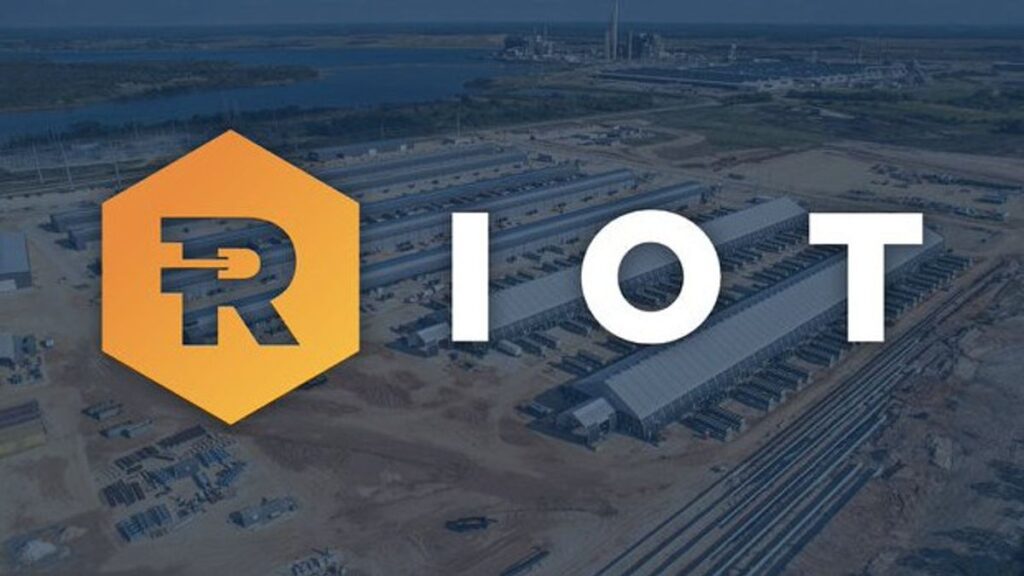Riot Platforms increased its stake in Bitfarms to 18.9% by acquiring an additional one million shares, aiming to influence board changes.

In recent days, the ongoing dispute between Riot Platforms and Bitfarms, two Bitcoin mining titans, has taken a significant turn. Riot Platforms disclosed the acquisition of an additional one million Bitfarms common shares through open market transactions on August 13.
The acquisition was valued at approximately $2.28 million and increased Riot’s holdings to 85.3 million shares, up from 84.3 million. Consequently, Riot currently owns 18.9% of the Canadian company.
Riot’s acquisition is a component of its overarching strategy to influence changes within Bitfarms, which includes advocating for the inclusion of more independent members on the Bitfarms board.
Just one day prior to Riot’s announcement, Bitfarms disclosed a substantial restructuring of its board of directors, which now consists of four independent members out of a total of five. Nicolas Bonta, who previously served as interim president and CEO of Bitfarms, has resigned from the board.
Riot suggested that it may increase its ownership of Bitfarms in an official statement. Cointelegraph has not received a response from either organization regarding these most recent developments.
Bitdeer’s earnings increase, Hamster Kombat’s rejection of venture capital offers, Grayscale’s new crypto fund, and a forthcoming Solana exchange-traded fund (ETF) in Brazil are also examined in this week’s Crypto Biz magazine.
Bitdeer experiences a 50% increase in gross profit as Bitcoin mining operations expand.
In the second quarter of 2024, Bitdeer Technologies Group experienced a nearly 50% year-over-year increase in gross profits, primarily due to the nearly doubling of its in-house Bitcoin mining capacity, as indicated by the company’s earnings report on August 12.
According to Bitdeer, the gross profit for the second quarter of 2024 increased from $16.2 million in 2023 to $24.4 million. Bitdeer has increased its capacity for “self-mining” — or mining Bitcoin for its own account — from 3.8 exahashes per second to 7.3 EH/s.
Venture Capital Proposals are Declined by Hamster Kombat
The team responsible for Hamster Kombat has disclosed that they have declined numerous proposals from prominent venture capital firms in the cryptocurrency sector.
The decision, as stated in an announcement, is intended to safeguard its player base and preserve its commitment to offering a meritocratic gaming experience that incentivizes players to participate.
This is in stark contrast to other crypto projects that accept venture capital funding, which the team contends may prioritize investor interests over the long-term well-being of participants. The firms that expressed interest in financing Hamster’s Telegram-based game were not disclosed.
Grayscale Establishes an Investment fund for the MakerDAO Token
Grayscale Investments has initiated a new investment fund that is exclusively dedicated to MakerDAO’s governance token, Maker.
Grayscale’s portfolio of single-asset crypto investment products is enhanced by the fund, which is exclusively accessible to qualified investors.
Grayscale explains that the action is part of its strategy to broaden its crypto offerings and offer investors additional opportunities to participate in decentralized finance ecosystems. Grayscale is currently the world’s largest crypto fund manager, with assets under administration exceeding $25 billion.
Brazil is prepared to introduce the world’s first spot Solana ETF in advance of global markets.
In an effort to secure the inaugural position in Brazil’s Solana ETF, asset manager Hashdex has submitted an application. If approved, it would enable investors to acquire exposure to Solana’s blockchain without directly possessing the cryptocurrency.
The ETF is still awaiting regulatory approval, which is indicative of the increasing interest in crypto investments in Brazil.
According to Alejo Pinto, the founder of Solana layer-2 network Lumio and former IBM blockchain growth lead, the United States is unlikely to immediately follow suit, as Bitcoin ETFs were in the pipeline for years before receiving formal sanction.
